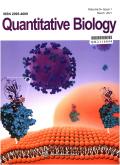生物信息学基础模型
IF 0.6
4区 生物学
Q4 MATHEMATICAL & COMPUTATIONAL BIOLOGY
引用次数: 0
摘要
基于变换器的基础模型(如 ChatGPT)已经彻底改变了我们的日常生活,并影响了包括生物信息学在内的许多领域。在本视角中,我们首先讨论了文本基础模型在生物信息学任务中的直接应用,重点是如何充分利用经典大语言模型并减少其固有缺陷。同时,我们还讨论了基于转换器的、为序列和非序列数据定制的生物信息学基础模型。我们特别展望了生物信息学基础模型的进一步发展方向和挑战。本文章由计算机程序翻译,如有差异,请以英文原文为准。
Foundation models for bioinformatics
Transformer‐based foundation models such as ChatGPTs have revolutionized our daily life and affected many fields including bioinformatics. In this perspective, we first discuss about the direct application of textual foundation models on bioinformatics tasks, focusing on how to make the most out of canonical large language models and mitigate their inherent flaws. Meanwhile, we go through the transformer‐based, bioinformatics‐tailored foundation models for both sequence and non‐sequence data. In particular, we envision the further development directions as well as challenges for bioinformatics foundation models.
求助全文
通过发布文献求助,成功后即可免费获取论文全文。
去求助
来源期刊

Quantitative Biology
MATHEMATICAL & COMPUTATIONAL BIOLOGY-
CiteScore
5.00
自引率
3.20%
发文量
264
期刊介绍:
Quantitative Biology is an interdisciplinary journal that focuses on original research that uses quantitative approaches and technologies to analyze and integrate biological systems, construct and model engineered life systems, and gain a deeper understanding of the life sciences. It aims to provide a platform for not only the analysis but also the integration and construction of biological systems. It is a quarterly journal seeking to provide an inter- and multi-disciplinary forum for a broad blend of peer-reviewed academic papers in order to promote rapid communication and exchange between scientists in the East and the West. The content of Quantitative Biology will mainly focus on the two broad and related areas: ·bioinformatics and computational biology, which focuses on dealing with information technologies and computational methodologies that can efficiently and accurately manipulate –omics data and transform molecular information into biological knowledge. ·systems and synthetic biology, which focuses on complex interactions in biological systems and the emergent functional properties, and on the design and construction of new biological functions and systems. Its goal is to reflect the significant advances made in quantitatively investigating and modeling both natural and engineered life systems at the molecular and higher levels. The journal particularly encourages original papers that link novel theory with cutting-edge experiments, especially in the newly emerging and multi-disciplinary areas of research. The journal also welcomes high-quality reviews and perspective articles.
 求助内容:
求助内容: 应助结果提醒方式:
应助结果提醒方式:


